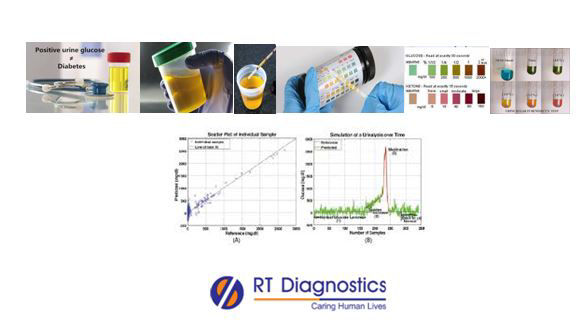Urine – 3 Hours:
Why Urine – 3 Hours Test?
CLINICAL INFORMATION
The body converts the consumed carbohydrates into blood glucose, which is the source of energy for the cells. Glucose can be measured in several body fluids (blood, urine, interstitial fluid, CSF, pleural fluid, ascetic fluid etc), and has an important diagnostic value in terms of various pathologies. The insulin hormone helps in mobilizing the glucose in the blood into the cells. The excess glucose is eliminated through urine. The presence of glucose in the urine is called glycosuria or glucosuria. Clinical manifestations of diabetes mellitus, that reflect the endogenous insulin secretion and its corresponding blood glucose levels are more often indicated by performing the GTT test, measured in the blood and urine sugar evaluation. Normally this hormone insulin helps glucose entry from the bloodstream into the cells. In uncontrolled diabetic patients when glucose levels reach high levels beyond threshold levels (in normal levels glucose is usually reabsorbed by kidneys), it is excreted in the urine (glucosuria), hence can be tested by urine glucose test. Two main types of diabetes mellitus are type-1 and type-2. Lack or absence of insulin results in diabetes mellitus. The signs and symptoms include fatigue, increased thirst or hunger, frequent urination, blurred vision, dry mouth, slow wound healing, fatigue, shortness of breath, stomach pain, fruity breath odour, dry mouth, nausea and vomiting etc. Abnormal high urine glucose levels may indicate diabetes mellitus, pregnancy (gestational diabetes), renal glycosuria etc. Chronic untreated diabetes can lead to complications such as kidney failure, nerve damage (end-organ damage), diabetic ketoacidosis etc. This urine test is preferred as a part of a routine normal test, along with any normal biochemistry parameters. Since this is a non-invasive test in a quick and simple way, it can yield vital information about the health status. This urine sugar test checks the levels of glucose in a patient’s urine. Thus the urine sugar test is a part of urinalysis that helps in the screening of glucose levels present in the urine sample specimen. This test may be ordered by the physician in case of suspected renal glycosuria (excretion of glucose by the kidneys even in case of normal blood glucose levels). This test is usually done for the medical diagnosis of certain abnormalities such as pancreatitis, pancreatic cancers and an underactive thyroid. Low levels of glucose also indicate self-administration of overuse of insulin dose, starvation, Addison’s disease, insulinoma, kidney diseases etc. Therefore test helps to diagnose diabetes and also to manage their condition to prevent further complications (such as diabetic ketoacidosis due to uncontrolled diabetes mellitus). Usually, it is measured by a dipstick made with a colour-sensitive pad. This is a routine test to monitor diabetes mellitus. This test also aids in UTIs, kidney disorders etc. The required sample specimen collected for urine sugar test may be advised by the physician as patient’s fasting, postprandial or routine urine specimen etc. Urine Sugar – 3 Hours (three hours)Test is conducted indirectly to determine the levels of blood glucose, especially in patients with diabetes (type-1 and type-2) mellitus eg Glucose Tolerance Test (GTT). Additional tests include Benedict’s test, Fehling’s test, CBC, Differential count, blood glucose, HbA1C (incase of the diabetic patient), urine glucose, insulin test, C-Peptide test, glucagon test, protein test in blood and urine, A/G ratio, ESR, D-dimer, CRP, Culture and sensitivity test etc. Other tests include cortisol test, ECG, EEG, imaging studies like CT Scan, MRI etc.




